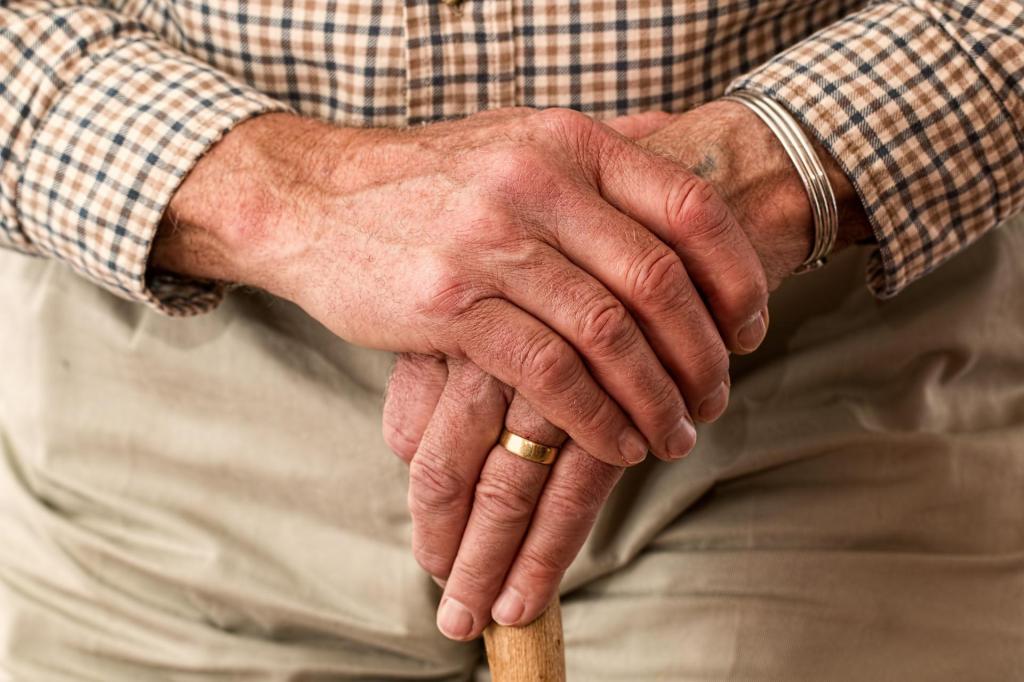By Dr K Madan Gopal & Dr K S Uplabdh Gopal
Meena’s plight at 75 is a grim reflection of a larger crisis unfolding in India. With painful knees and a meagre pension that barely covers her basic needs, doctor visits are a luxury she can’t afford. Her children, distant and preoccupied, offer only phone calls, leaving her to battle loneliness, her most debilitating ailment. Her story is not singular but a common narrative among India’s seniors, a population set to reach 138 million. The 2024 NITI Aayog report “Senior Care in India: Reimagining the Senior Care Paradigm” is a stark warning: India’s current systems are failing its seniors, eroding the foundations of healthcare and community.
As India progresses, its seniors, once the builders of our nation, face abandonment and systemic neglect. The dissolution of traditional joint family structures, compounded by rising ageism, has left many isolated, impacting both their physical and mental health. A HelpAge India study in 2022 revealed that over 60% of seniors feel lonely and depressed, highlighting the deep cracks in our social fabric.
Smt. Jaya Bachchan, a Member of Parliament, amplifies this crisis with her impassioned plea, questioning the very essence of ageing in India. Her words are a clarion call for urgent reform in senior care practices. As the nation’s seniors grapple with inadequate pensions, a lack of specialised care, and increasing isolation, the time for transformative change is now. We must collectively strive for a society that upholds the dignity and well-being of its ageing members, integrating government action, private sector innovation, and a fundamental shift in societal perceptions. The journey to address India’s ageing crisis must begin today.
Despite some growth, India’s senior care sector remains disorganised and falls short of need. For many ageing Indians, life is a daily struggle. Inadequate pensions leave them trapped in poverty, unable to afford vital medications. Skyrocketing healthcare costs drain their life savings and strain families. Overcrowded hospitals and a lack of specialised senior care create a vicious cycle of deteriorating health. Ageism isolates seniors, fueling devastating rates of loneliness and mental health decline. Sadly, less than 2% of care facilities reach even basic quality standards, highlighting the widespread failures of India’s senior care system. A nation cannot claim true progress when its senior citizens are reduced to the shadows of their former selves.
These harsh numbers only begin to paint a picture of India’s crisis. Neglect of senior care has far-reaching consequences. Rapidly rising chronic disease rates among seniors put a massive strain on the public healthcare system. Seniors without sufficient support shoulder burdens that limit younger generations’ economic potential. Moreover, societal demoralisation sets in when age brings not respect but vulnerability. India’s progress will remain limited if we ignore this crisis that cuts across every community.
India’s approach to Senior care requires transformative change. Embracing a model of preventive healthcare for older people is crucial. Regular health screenings and focused interventions can significantly reduce the need for expensive hospital stays. Establishing government-funded senior health insurance as a standard provision is vital, ensuring that quality healthcare is not just a luxury for the affluent. Moreover, community centres promoting social interaction, physical activity, and skill development are essential in combating the isolation many seniors face. These centres can offer a supportive environment for older people to remain engaged and active.
Additionally, India’s strategy for senior care needs a thorough revamp to address the diverse and complex needs of its ageing population. Prioritising governmental initiatives is key. The establishment of a universal basic pension system, along with the expansion of subsidised, specialised health insurance for senior people, should be a top priority. Furthermore, community-based care initiatives emphasising inclusivity and social engagement are crucial in alleviating the loneliness that many seniors experience. The existing Rashtriya Vayoshri Yojana scheme by the Indian government, which provides assistive devices to older people, is commendable but needs expansion. This expansion should include more accessible infrastructure projects that support seniors living independently and with dignity.
Leveraging Innovation: Embracing India’s Potential
India’s response to the challenges of senior care must go beyond government policy to embrace the nation’s innovative spirit and entrepreneurial energy. Numerous startups are at the forefront, creating cutting-edge solutions for senior care, such as remote diagnostic tools and AI-driven platforms that improve home care coordination. Government initiatives like funding grants, incubation programmes, and partnerships between the public and private sectors are crucial to supporting and expanding these innovations. These efforts will foster innovative solutions and ensure they reach and benefit a wider segment of the senior population.
Fostering Collaboration and Collective Responsibility
Tackling the complex issue of senior care in India requires more than just policy reform; it calls for a collaborative effort across different sectors. Non-governmental organisations (NGOs) focusing on senior care must be recognised and supported as key partners in building community-based programmes and providing advocacy. The corporate sector also has a significant role to play by adopting age-friendly employment policies and creating products and services tailored to the needs of seniors. Additionally, there’s a need to shift societal perceptions of ageing. Media campaigns promoting positive images of ageing can help combat ageism, and programmes encouraging interactions between generations can enrich our society, blending the energy of youth with the wisdom of age.
Recommended Reforms and Their Significance
The report sets forth a comprehensive strategy for reforming senior care. Emphasising preventive healthcare and effective management of chronic diseases is essential to reducing the burden on seniors and the healthcare system. Initiatives that promote community engagement and combat loneliness are crucial for social inclusion. Furthermore, integrating digital health technologies can enhance monitoring and offer more tailored services. Implementing these reforms is vital to providing India’s seniors with more attentive, dignified, and efficient care.
Technology’s Impact on Seniors Care
In India, technology can potentially transform the landscape of senior care. Telemedicine services can greatly improve healthcare access for seniors living in remote areas. Using AI for diagnostic purposes and patient data analysis is pivotal for preventive and personalised care. Additionally, wearable health devices can enable seniors to maintain greater independence and facilitate early health interventions. As India emerges as a leader in technology, it’s imperative to prioritise these innovations in seniors’ care.
Collaboration Between Public and Private Sectors
A strong collaboration between the public and private sectors is crucial for India to make rapid strides in improving senior care. Offering government incentives to startups focusing on senior care solutions can spur innovation in this field. Collaborations between NGOs specialising in senior care and public hospitals are vital for effectively allocating resources to community-based programmes. Such partnerships are key to creating a lasting and significant social impact, particularly in senior care. The report’s calls for policy innovation and tech-driven solutions require completely reshaping our thinking. Expanding eligibility for existing schemes and providing tax incentives to families aiding in senior care should be considered moral acts and investments in India’s long-term well-being.
A society’s strength lies in how it uplifts it’s most vulnerable. Our seniors – architects of our present and holders of knowledge – deserve to age with security, health, and purpose. “My foremost wish is to repay the debt the nation owes you. My Government is thus committed to ensuring that your golden years are spent happily, peacefully and meaningfully.” -PM Modi- Letter to elders in 2015.
Let’s remember – neglecting care for India’s seniors today creates an unsustainable burden for our future. Investing in senior care isn’t simply an act of empathy but an investment in India’s social and economic progress. With bold policies, innovative approaches, and a renewed dedication to our seniors, we can ensure that India’s rising senior population isn’t a burden but a blessing, their golden years marked by the respect and care they deserve.
(Dr. K. Madan Gopal is an advisor to the Public Health Administration, NHSRC, MoHFW, and was a former senior consultant at NITI Aayog, GOI. Dr K. S. Uplabdh Gopal is a Healthcare Professional. Views expressed are personal and do not reflect the official position or policy of the FinancialExpress.com.)









